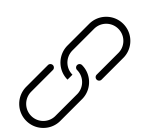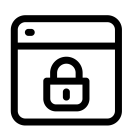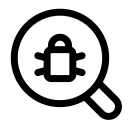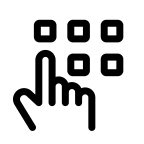BMI Federal Credit Union

Protect Yourself From Social Media Scams
Social media is great for connecting with friends, following brands, and sharing life moments. But it's also where scammers go to trick people into giving up personal and financial information.
Here's how social media scams work and how you can avoid them.
How Do Social Media Scams Work?
Scammers often create fake profiles or hack into real ones. Then they reach out through messages, posts, or ads that seem trustworthy, but are not. They may:
- Offer fake giveaways, prizes, or job opportunities
- Pretend to be a friend or family member in need
- Send you links that lead to fake login pages
- Promote fake investment opportunities
- Initiate a romantic interest, then ask for monetary assistance
Once you engage, scammers will try to get you to click a link, share sensitive info, or send money.
|
What Are They After?
Scammers are often looking for:
- Your card or account number
- Online banking login info
- Two-factor authentication codes (2-FA)
- Personal information (like your Social Security number)
- Money sent via apps, cryptocurrency, or gift cards
With just a few details, they can access your accounts or steal your identity.
|
How Can You Protect Yourself From Social Media Scams?
Here are some smart ways to stay safe:
|

Be cautious with links:
Don't click on links in messages or comments, even if they look like they're from someone you know. If it seems suspicious, it probably is.
|
|

Use strong security settings:
Keep your social accounts private. Use unique, strong passwords and enable two-factor authentication.
|
|

Watch for red flags:
- Urgent or emotional messages
- Offers that seem too good to be true
- Requests for sensitive information
- Poor grammar or unusual formatting
- Will only communicate with you online or through an app such as WhatsApp
|
|

Don't send money:
Whether it's for "shipping fees," "investments," or someone "in trouble," don't send money or share payment info with anyone, even if you know them. Always verify if someone is real by reaching out through a known contact method.
|

- Stop communicating with the person immediately
- Don't click any links or enter information
- Change your passwords, especially for online banking and email
- Contact us right away at 614.707.4000
- Report the scam to the social platform and the FTC: www.reportfraud.ftc.gov
We're here to help
If you think your BMI Federal Credit Union account may have been compromised, or if you're unsure about a charge, don't hesitate to reach out.
Like what you see? Sign up to receive the free CreditLines newsletter.
(August 2025)